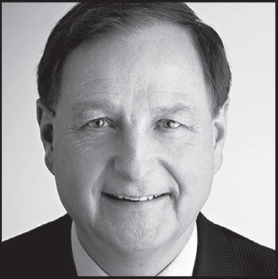Shape-shifting: This is the concept that will dominate litigation work over the next 35 years, and it will have a significant impact on the nature of one’s career. Day-to-day work will be constantly evolving to keep pace with advances in technology and sophisticated uses of big data. These systems won’t duplicate the judgment of a lawyer, but they will find new ways of analyzing information, making old methods quickly irrelevant.
There will be a premium on creativity among lawyers. Those that perform repetitive tasks will tend to become obsolete, but new horizons will come into focus. Our computers will evolve beyond mere adding machines and communication devices, and directly enhance the mental processes of individual lawyers, creating what may be considered the artificial/human professional.
We can already see this shape-shifting in the cultural profile of new lawyers. The emphasis on personal life and emotional intelligence, however, is not a millennial concept; it is a universally recognized set of values upon which future work environments and client relationships are being constructed.
These values are increasingly the calling cards that clients are demanding. Obligations to fairness, respect and friendship will replace the warrior god with the philosopher king. Creative mediation and predictable outcomes will supplant much of the existing winner-takes-all model, even in regulatory and criminal matters.
For larger institutions, the forces for change will rise from the bottom and be driven at the top. Lawyers are demanding an environment that fulfils all of their personal needs. Failure to recognize this huge cultural change will cause institutions themselves to fail. From the top, clients and the public will demand workplace audits to measure fairness, diversity, courtesy in much the same way they have previously concentrated on excellence and economic efficiency.
Planning a career to 2050 and beyond, lawyers are beset with forces of profound significance. Security based on a stable life environment will be seriously challenged. Social media has opened a window into every lawyer’s character, intelligence, judgment and actions. There is little room to survive an impaired driving charge or an unacceptably rude public reaction. Not only will the skills of lawyers be rated, but so too their character.
This “new lawyer” will be constantly seeking out novel workplaces, no longer allowing loyalty to the firm to obstruct personal needs. He or she will use mobility from workplace to workplace and secondments to experience different work environments — to truly know their clients, form lifelong professional and business partnerships, achieve client loyalty, learn problem-solving and see the work world beyond economic pressures.
The new lawyer, engaged in the world, will see the deficiencies in his or her education, workplace experience, cultural views and individual wellness: “Have I sufficient understanding of accounting, economics, government, bureaucracy, inter-personal relationship dynamics, cultural, linguistic, physical and other factors that allow me to ‘hold my personal centre’ while improving my skills and understandings and advancing in an unpredictable world?”
Because individuals operating in the world will increasingly be transparent in all aspects of their lives, their workplace brand will matter and their personal brand will require constant cultivation. As individual lawyers practise, teach, lecture, write, publish, advise and participate in various aspects of their professional life, each one will be required to learn new ideas, skills and judgments.
Looking back from 2050, lawyers will embrace and remember those with whom they have travelled. The end point will not have been predictable, and they will hardly recognize the place from which they began.
John Campion is an internationally recognized trial, appeal and arbitration lawyer. He is a senior partner at Fasken Martineau DuMoulin LLP.





